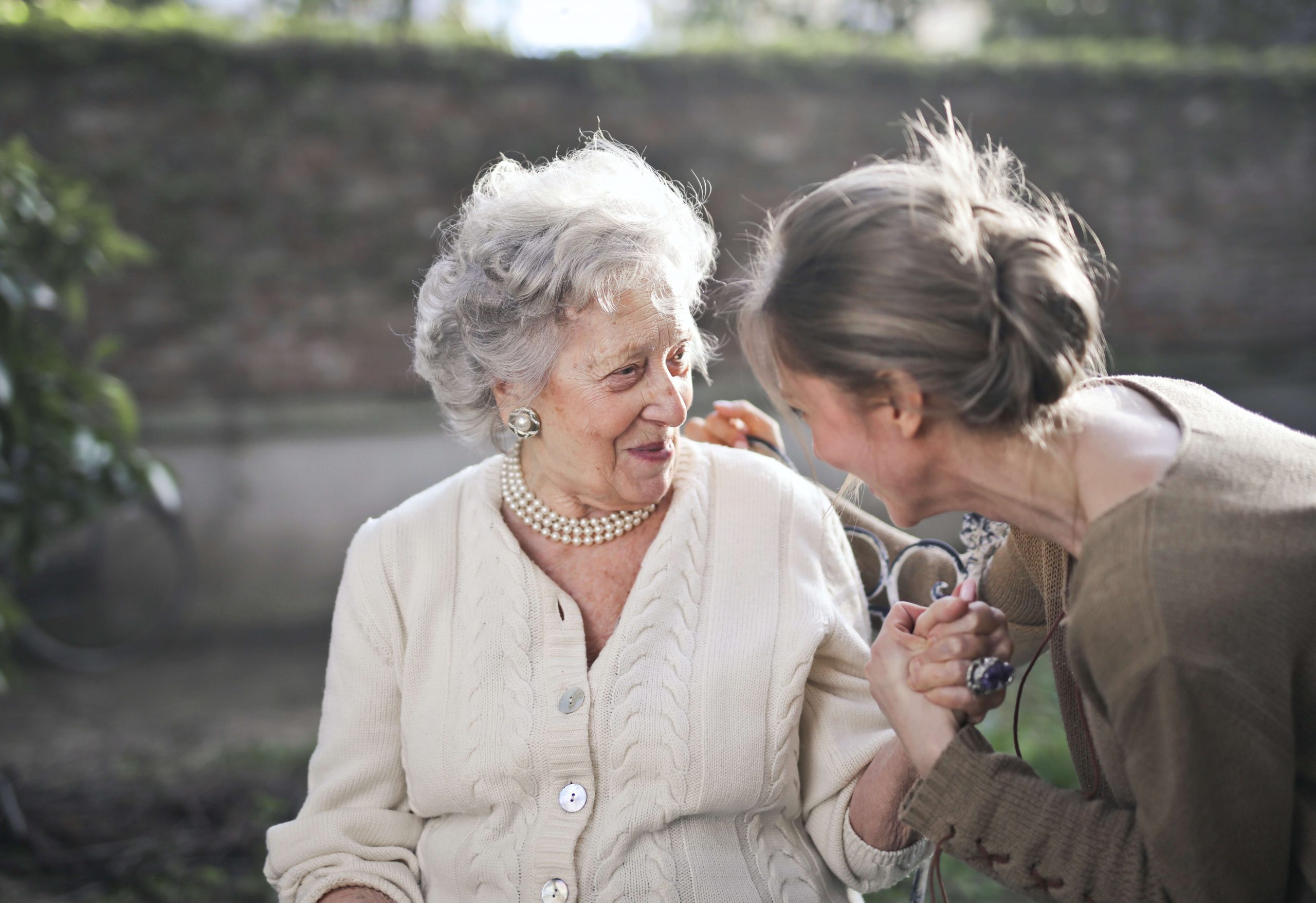Find hope
You can adapt to dementia and continue living your life.
Sometimes doctors do not always talk about how dementia might affect your daily lives or relationships, and what you can do to cope with these changes. People have told us that sometimes they felt worried about the future and didn’t know what to do next. If you have lost hope, we are here to help you find it.
We have developed this website with many people with dementia who have inspired and taught us about living meaningfully. Most people with dementia have symptoms that make it harder for them to do things. However, they manage to get things done with practical strategies, therapy, and support from others. They had some of the same feelings, fears, uncertainties that you might feel. Almost all of them lost hope after their diagnosis.
They found hope in different ways such as:
- meeting and reading about other people with dementia (Kate Swaffer’s blog is an inspiration for many)
- using strategies which help with their dementia (John Quinn writes about his practical strategies)
- spending time with people they love
- doing activities which are important to them
- participating in research because they were doing something which might help themselves and others and meeting researchers with expertise in dementia.
For some people finding hope was a gradual process, and for others it was a conscious decision.
I decided it is what it is, and I might as well go through it the best as I can”.
We know that dementia is a difficult chronic disease to live with and that it’s likely that in the future your dementia will get worse. Read about What may happen in the future. This website includes information which we hope will give you hope that you can maintain your life the way it is (or improve it) in the near future. Find out about Managing expectations about dementia, Managing symptoms and changes, and looking after your health and wellbeing. We also encourage you to explore the things you can do to prepare for further ahead as your dementia progresses in Making plans and decisions.

Start your own dementia toolkit
Let’s break down myths and stereotypes about dementia
Many people feel negative or ashamed about themselves because they have dementia. In contrast, people with other chronic diseases like arthritis or heart disease are less likely to feel ashamed. These negative views often come from common myths and stereotypes about dementia. We might be familiar with these through television, books, films, the news and society.
Let’s bust some of these myths and stereotypes.
Myth 1
People with dementia are victims suffering from the disease
The facts:
Many people with dementia have control, are comfortable, content or even happy
The common myth about people with dementia is that they are victims who are suffering from a brain disease that robs them of their memories, identity and life. People with dementia are often shown on television, in books and described in the news as powerless, dependent and requiring compassion and care.
This is not the case. While people with dementia have a brain disease, and may have problems with memory and concentration, they know who they are and remember important things. Many people with dementia do a lot for themselves and for others and are in control of their lives, even if they get help for some tasks.
Unfortunately, many people including doctors and other healthcare professionals also have this stereotype. This means that doctors and other professionals might treat you as if you can’t understand or make decisions, talking to your family instead of to you directly, or not giving you information and choices.
You are not the stereotyped suffering victim of dementia. You are you.
Ask your doctors to treat you as they would their other patients without dementia, talking to you as a person with rights to get information and choices about your treatments.
Myth 2
People with dementia cannot learn
The facts:
People with dementia continue to learn
People with dementia often have problems with their short-term memory. This means you may not remember things that happened recently. It can take more effort and longer for people with dementia to learn new things. For instance, many people with dementia learned to use Zoom along with everyone else during the pandemic.
It can be stressful or confronting going into a situation where you have to learn something new. Some people with dementia have told us that it’s frustrating and they sometimes avoid those situations. If you are going into a situation where you will be learning, take your time, use pencil and paper, or however else you like to record information. Ask for help when you need it.
Myth 3
There is nothing that can be done for people with dementia
The facts:
There are many treatments and strategies that can slow dementia progression and deal with symptoms
here may be medications, therapies and things you can do for yourself such as keeping your brain active. There is more information on other areas of this site. Find out more in Managing symptoms and changes.
Learn from others with dementia living meaningful lives
For many people with dementia, meeting others living with dementia was a turning point in finding hope. They realise that the person living with dementia is a normal regular person, who keeps living their life through the ups and downs of dementia symptoms. People with dementia might meet others online, such as in a chat group, at a Dementia Alliance International or DEEP meeting, or at an online webinar. Or they might meet in person through a support group, a memory café or through friends.
A dementia peer support group is a group of people with dementia who share experiences and support each other, there may or may not be people without dementia (e.g. carers or a professional facilitator) as part of the group. Some people with dementia find peer support groups helpful “it saved my life” because they can share with people going through the same experiences and emotions as they are.
You might want to ‘meet’ other people with dementia living meaningful lives by:
- Exploring the stories section of this website where people with dementia share how they are managing their dementia and what their lives are like after diagnosis.
- Reading blogs of people with dementia
- Visiting Dementia talking point Dementia Talking Point (alzheimers.org.uk)
- Signing up for a support group through Dementia Connect.
Dementia Alliance international

Dementia Alliance International (DAI) is a collaboration of like-minded people living with dementia who provide a unified voice of strength, advocacy, and support in the fight for individual autonomy for people with dementia. DAI was established to provide education and awareness about dementia, to eradicate stigma and discrimination and to improve the quality of the lives of people with dementia.
DAI runs online peer to peer support groups, as well as hosting virtual cafes and an educational webinars series for members around the world. Membership and services are free for people with dementia.
DEEP
DEEP is a UK wide network of people living with dementia. It brings together over a hundred local dementia groups. DEEP encourages people living with dementia to speak out about their rights and the issues that are important to living with dementia.
Write down 3 good things
To remind yourself about what is meaningful to you, write down 3 good things about your life right now and why they are important to you. Spend time on those things (including people if you have people on your list) this month.
Write down 3 good things about your life right now. Focus on these things as they give meaning to your life.
Sign up to a support group
Meet other people who have been recently diagnosed with dementia through Dementia Connect
Alzheimer’s Society or DEEP
Participate in research
Sign up to Join Dementia Research to find out about local and national research projects. Many people living with dementia tell us that it really helps them to know that they are helping others with dementia by taking part in research.






